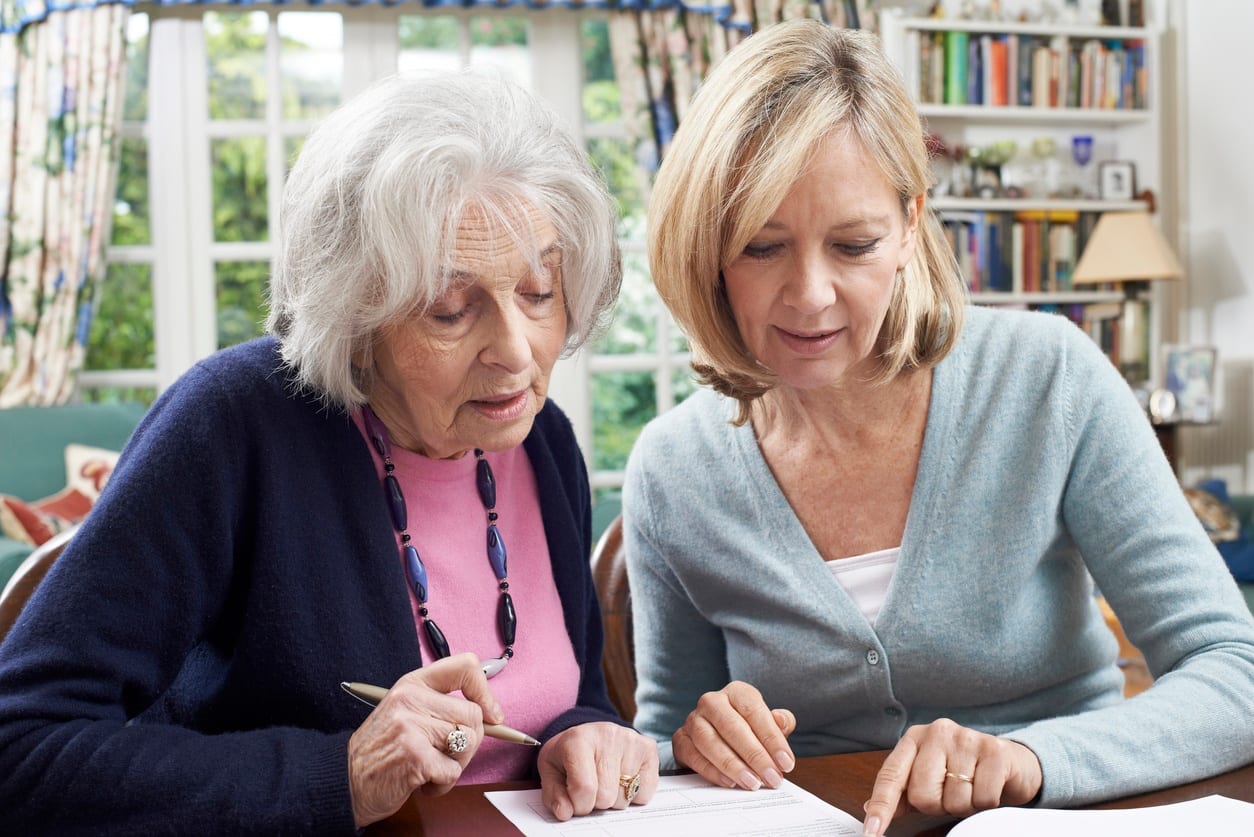It’s not easy to watch someone you love get older. It can be even harder when you don’t live close by, and you know that they are suffering from loneliness. Although many people choose to stay in their own home as they age, it can also be isolating. In fact, according to a recent study, nearly one-fourth of adults aged 65 and older are considered to be socially isolated. In addition to the emotional toll, loneliness can also lead to health risks. Research has shown that social isolation was associated with about a 50% percent increased risk of dementia, a 29% increased risk of heart disease, and a 32% increased risk of stroke. But how can you help a loved one that is dealing with loneliness? One solution is to hire a home companion. FirstLantic Healthcare spoke to Gloria Jacobs, Patient Care Coordinator to find out exactly what services home companions provide and how they might be able to support your family member.
Q: What do home companions do exactly?
GJ: Home companions provide companionship for the patient or client and help take care of their needs as requested by the client or family member. They interact and socialize and can engage with the client in interests they might have such as playing board games, cards, reading, shopping, visiting the library, going out to lunch, swimming, walks, etc. They can also help with other tasks such as scheduling doctor’s appointments, providing transportation, food shopping, preparation of meals, light housekeeping, and providing reminders about taking medication although they can’t dispense meds.
Q.What are the main requirements for a home companion and what is the main difference between a home companion and a home health aide?
GJ: Many agencies require evidence of training for a companion in areas related to human development and interpersonal relationships, nutrition, shopping, food storage, and principles of cleanliness and safety. For example, companions may stand by to make sure client is safe while showering or assist them when they are walking. They also are required to report any unusual incidents or changes in behavior.
GJ: A home health aide is either licensed or certified under State regulations to provide hands-on or direct care such as showering, baths, dressing, feeding, incontinence care, and HHA referred by nurse registries may assist with self-administration of medication in certain states.
Q. Is there flexibility in what a home companion can help with or are they restricted to only specific duties?
GJ: Home companions are limited to the duties described above such as social interaction, light housekeeping, cooking, and transportation. If more hands-on medical care is required, there are other qualified professionals to provide that type of support.
Q. Are there options for how often a home care companion can come to the home?
GJ: Yes, most companions work part-time and can be responsive to the client’s needs and come only on days and during hours that are requested.
We thank Gloria Jacobs for responding to our questions. If you want more information on home companions and other services that FirstLantic provides, click here.
To read more FirstLantic blogs, click here.
Additional resources:
National Council on Aging —Works with nonprofit organizations, governments, and businesses to provide community programs and services. This is the place to find what senior programs are available to assist with healthy aging and financial security, including the Aging Mastery Program® that is shown to increase social connectedness and healthy eating habits.
National Institute on Aging (NIA) – Provides materials on social isolation and loneliness for older adults, caregivers, and health care providers. Materials include health information, a print publication available to view or order no-cost paper copies, a health care provider flyer, and social media graphics and posts.
 AVAILABLE 24 HOURS A DAY/7 DAYS A WEEK
AVAILABLE 24 HOURS A DAY/7 DAYS A WEEK Careers
Careers







